Author Dick Gaughan
Cumha Mhic Criomain
La versione scozzese di Jeannie Robertson (1955) nell'interpretazione di Dick Gaughan ("No More Forever", 1972)
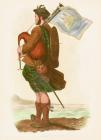
Da Mudcat Cafè
MACCRIMMON'S LAMENT
(Continues)
(Continues)
Contributed by B.B. 2020/4/5 - 20:45
Schooldays Over, Come on Then John
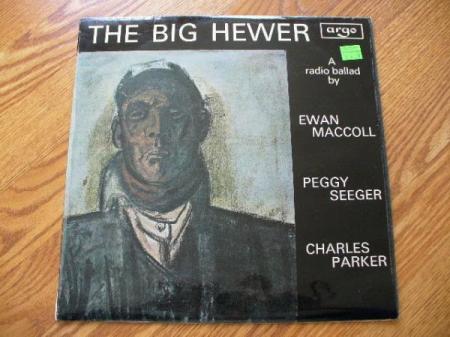
[1960]
Parole di Ewan MacColl
Musica di Ewan MacColl e Peggy Seeger
In "The Big Hewer - A Radio Ballad About Britain's Coal Miners", trasmissione radiofonica in onda nel 1960 sulla BBC Radio, prodotta da Charles Parker (1919-1980), scrittore, cantante ed attore teatrale. Il disco è del 1967, poi riedito nel 1999.
Si tratta della quarta di otto emissioni curate da MacColl e dalla Seeger tra il 1957 ed il 1964.
La coppia si avvalse della collaborazione di artisti prestigiosi, come Dave Swarbrick, A. L. Lloyd, Ian Campbell, Isla Cameron e Louis Killen.
Interpreta da molti, tra cui i Dubliners, i Chieftains, Dick Gaughan, Damien Dempsey, i Clancy Brothers,...
Pitman e collier sono entrambi sinonimi di miner, tre modi diversi che l'inglese ha per indicare il minatore del carbone...
Parole di Ewan MacColl
Musica di Ewan MacColl e Peggy Seeger
In "The Big Hewer - A Radio Ballad About Britain's Coal Miners", trasmissione radiofonica in onda nel 1960 sulla BBC Radio, prodotta da Charles Parker (1919-1980), scrittore, cantante ed attore teatrale. Il disco è del 1967, poi riedito nel 1999.
Si tratta della quarta di otto emissioni curate da MacColl e dalla Seeger tra il 1957 ed il 1964.
La coppia si avvalse della collaborazione di artisti prestigiosi, come Dave Swarbrick, A. L. Lloyd, Ian Campbell, Isla Cameron e Louis Killen.
Interpreta da molti, tra cui i Dubliners, i Chieftains, Dick Gaughan, Damien Dempsey, i Clancy Brothers,...
Pitman e collier sono entrambi sinonimi di miner, tre modi diversi che l'inglese ha per indicare il minatore del carbone...
Schooldays over, come on then John
(Continues)
(Continues)
Contributed by Bernart Bartleby 2018/1/29 - 21:42
Song Itineraries:
Child Abuse, The War of Labour: Emigration, Immigration, Exploitation, Slavery
John MacLean March
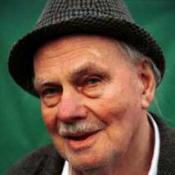
1972
Dick Ghaugan
No More Forever
John MacLean was a Scottish schoolteacher and Marxist educator who was sentenced to two years' imprisonment in 1918 for agitating against the carnage of World War 1. Due to popular outrage and demonstrations, he was released after 7 months but the harsh treatment he received in prison seriously damaged his health and he died a few years later.
His vision of an independent Scottish Socialist Republic disagreed strongly with Lenin and with Gallacher and other leading Scots Communists of the time as he was opposed to the integration of the Scots within the British Communist Party. (see : VI Lenin, 'Left Wing Communism', Willie Gallacher, 'Revolt on the Clyde' and Nan Milton's book on MacLean, whose title escapes me at the moment)
Dick Ghaugan
No More Forever
John MacLean was a Scottish schoolteacher and Marxist educator who was sentenced to two years' imprisonment in 1918 for agitating against the carnage of World War 1. Due to popular outrage and demonstrations, he was released after 7 months but the harsh treatment he received in prison seriously damaged his health and he died a few years later.
His vision of an independent Scottish Socialist Republic disagreed strongly with Lenin and with Gallacher and other leading Scots Communists of the time as he was opposed to the integration of the Scots within the British Communist Party. (see : VI Lenin, 'Left Wing Communism', Willie Gallacher, 'Revolt on the Clyde' and Nan Milton's book on MacLean, whose title escapes me at the moment)
Hey, mac, did ye see him as he cam doun by Gorgie
(Continues)
(Continues)
Contributed by Dq82 2016/11/13 - 00:06
Song Itineraries:
From World Jails
Been on the Road so Long
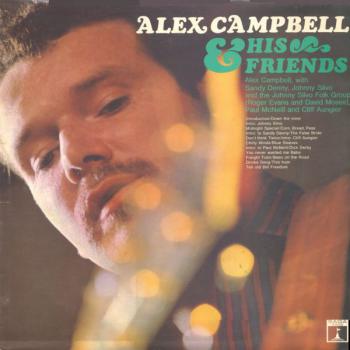
[1964]
Parole e musica di Alex Campbell (1925-1987), importante ed influente folk singer scozzese.
L’ultima strofa, riportata tra parentesi, è opera di Alan Francis (lo scrittore scozzese?), versione alternativa, attualizzata, della terza strofa originale di Campbell.
Testo trovato sull’insostituibile Mudcat Café
L’autore incise il brano nel 1967 nel disco “Alex Campbell and His Friends”, con Sandy Denny, The Johnny Silvo Folk Group, Cliff Aungier e Paul McNeill, ma prima di lui lo incise Bert Jansch nel 1965 nel suo disco intitolato“It Don't Bother Me”.
In seguito il brano fu riproposto da Sandy Denny (a partire da “Sandy and Johnny” del 1967, con Johnny Silvo), da Dick Gaughan (solo dal vivo) e da Hannes Wader, che ne fece una sua versione in tedesco, “Schon so Lang”, presente nell’album “7 Lieder” del 1972.
Parole e musica di Alex Campbell (1925-1987), importante ed influente folk singer scozzese.
L’ultima strofa, riportata tra parentesi, è opera di Alan Francis (lo scrittore scozzese?), versione alternativa, attualizzata, della terza strofa originale di Campbell.
Testo trovato sull’insostituibile Mudcat Café
L’autore incise il brano nel 1967 nel disco “Alex Campbell and His Friends”, con Sandy Denny, The Johnny Silvo Folk Group, Cliff Aungier e Paul McNeill, ma prima di lui lo incise Bert Jansch nel 1965 nel suo disco intitolato“It Don't Bother Me”.
In seguito il brano fu riproposto da Sandy Denny (a partire da “Sandy and Johnny” del 1967, con Johnny Silvo), da Dick Gaughan (solo dal vivo) e da Hannes Wader, che ne fece una sua versione in tedesco, “Schon so Lang”, presente nell’album “7 Lieder” del 1972.
I've been on the road
(Continues)
(Continues)
Contributed by Bernart Bartleby 2016/3/16 - 13:35
The Flowers O' the Forest
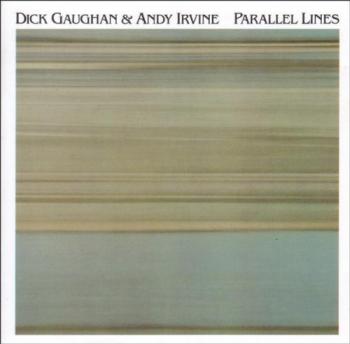
Incisa insieme ad Andy Irvine nel loro disco intitolato “Parallel Lines” pubblicato nel 1982.
The Floo’ers o’ the Forest
The Floo’ers o’ the Forest
THE FLOO’ERS O’ THE FOREST
(Continues)
(Continues)
Contributed by Bernart Bartleby 2015/4/29 - 23:02
The Hunter Dunne
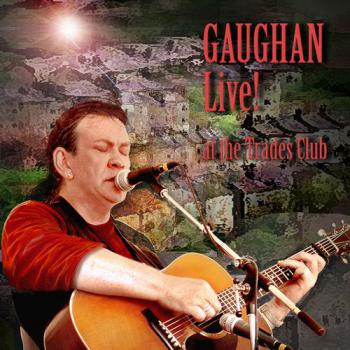
[2006]
Parole e musica di Dick Gaughan
Nell’album intitolato “Lucky For Some”
Poi anche in “Gaughan Live! At The Trades Club” (2008)
“I've had a few people try to read some significance into the choice of name here. There is none, the rhythm of the name simply fitted into the rhythm of the song. I could have used "Joe Bloggs" or "Bob Smith" but I used "John Dunne". They are also meant to be three separate characters with three different stories, illustrative of three different aspects of the same phenomenon - how Capitalism turns everything, including human lives, into commodities.” (Dick Gaughan)
“Qualcuno ha cercato di trovare un qualche significato nella scelta del nome. Non ce n’è nessuno, semplicemente il suono del nome si accordava col ritmo della canzone. Avrei potuto usare "Mario Rossi" o "Bob Smith" ma ho usato "John Dunne". Si tratta inoltre di tre diversi personaggi in tre... (Continues)
Parole e musica di Dick Gaughan
Nell’album intitolato “Lucky For Some”
Poi anche in “Gaughan Live! At The Trades Club” (2008)
“I've had a few people try to read some significance into the choice of name here. There is none, the rhythm of the name simply fitted into the rhythm of the song. I could have used "Joe Bloggs" or "Bob Smith" but I used "John Dunne". They are also meant to be three separate characters with three different stories, illustrative of three different aspects of the same phenomenon - how Capitalism turns everything, including human lives, into commodities.” (Dick Gaughan)
“Qualcuno ha cercato di trovare un qualche significato nella scelta del nome. Non ce n’è nessuno, semplicemente il suono del nome si accordava col ritmo della canzone. Avrei potuto usare "Mario Rossi" o "Bob Smith" ma ho usato "John Dunne". Si tratta inoltre di tre diversi personaggi in tre... (Continues)
John Dunne was a hunter, he hunted wanted men
(Continues)
(Continues)
Contributed by Bernart Bartleby 2015/4/29 - 10:31
Tom Paine's Bones

[1995]
Parole e musica di Graham Moore
La canzone che dà il titolo al suo album del 1995
Interpretata anche da Dick Gaughan nel suo album “Outlaws & Dreamers” del 2001
I The Young'uns l'hanno reinterpretata nel loro album Another Man's Ground (2015).
Thomas Paine (1737-1809) è considerato uno dei Padri Fondatori degli Stati Uniti d’America.
Quacchero, radicale, non conformista, rivoluzionario tanto in America quanto in Francia (dove fu arrestato durante il Terrore e rischiò il collo), autore di opere come “The Age of Reason” (1790, dove difendeva la religiosità, insita nell’uomo, dalla religione consolidata, dal potere ecclesiastico) e “Rights of Man” (1791, in difesa della Rivoluzione francese e dell’egualitarismo), Thomas Paine combattè tutta la vita e morì in povertà e quasi dimenticato. Soltanto sei persone attesero al suo funerale, due di esse erano schiavi neri da lui liberati. I suoi resti vennero in seguito esumati per essere trasportati e sepolti nel natale Norfolk ma andarono dispersi.
Parole e musica di Graham Moore
La canzone che dà il titolo al suo album del 1995
Interpretata anche da Dick Gaughan nel suo album “Outlaws & Dreamers” del 2001
I The Young'uns l'hanno reinterpretata nel loro album Another Man's Ground (2015).
Thomas Paine (1737-1809) è considerato uno dei Padri Fondatori degli Stati Uniti d’America.
Quacchero, radicale, non conformista, rivoluzionario tanto in America quanto in Francia (dove fu arrestato durante il Terrore e rischiò il collo), autore di opere come “The Age of Reason” (1790, dove difendeva la religiosità, insita nell’uomo, dalla religione consolidata, dal potere ecclesiastico) e “Rights of Man” (1791, in difesa della Rivoluzione francese e dell’egualitarismo), Thomas Paine combattè tutta la vita e morì in povertà e quasi dimenticato. Soltanto sei persone attesero al suo funerale, due di esse erano schiavi neri da lui liberati. I suoi resti vennero in seguito esumati per essere trasportati e sepolti nel natale Norfolk ma andarono dispersi.
As I dreamed out one evening
(Continues)
(Continues)
Contributed by Bernart Bartleby 2015/4/29 - 09:42
The Man From God-Knows-Where
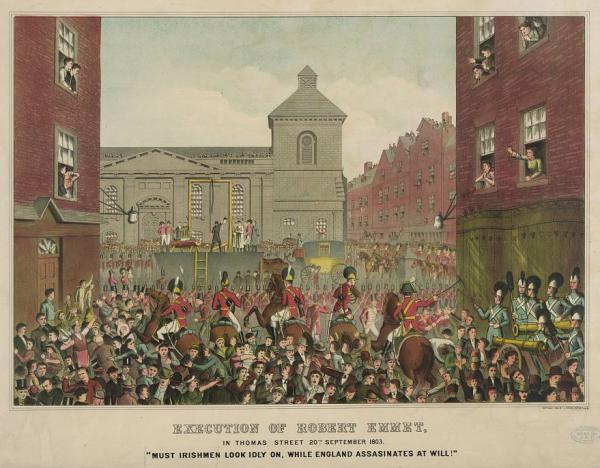
[1918]
Versi di Florence Mary Wilson Florence Mary Wilson (1874-1946), scrittrice e poetessa originaria di Lisburn, vicino a Belfast, tra le contee di Antrim e di Down, Ulster.
La poesia più famosa della raccolta intitolata “The Coming of the Earls”.
Ignoro se sia stata messa in musica già all’epoca, ma sicuramente fa parte del repertorio di artisti come Phil Coulter e Dick Gaughan.
Una poesia su Thomas Russell (1767-1803), nativo di Dromahane, contea irlandese di Cork, di religione anglicana. Per molti anni fu ufficiale della British Army ma studiò a lungo scienze, filosofia e politica. Molto colpito dalla Rivoluzione francese, si avvicinò ai circoli radicali di Belfast e divenne amico di gente come Wolfe Tone, Henry Joy McCracken e Samuel Neilson, con i quali, nel 1795, fondò la Society of United Irishmen.
L’anno seguente, dopo aver pubblicato l’appello “Letter to the People of Ireland”,... (Continues)
Versi di Florence Mary Wilson Florence Mary Wilson (1874-1946), scrittrice e poetessa originaria di Lisburn, vicino a Belfast, tra le contee di Antrim e di Down, Ulster.
La poesia più famosa della raccolta intitolata “The Coming of the Earls”.
Ignoro se sia stata messa in musica già all’epoca, ma sicuramente fa parte del repertorio di artisti come Phil Coulter e Dick Gaughan.
Una poesia su Thomas Russell (1767-1803), nativo di Dromahane, contea irlandese di Cork, di religione anglicana. Per molti anni fu ufficiale della British Army ma studiò a lungo scienze, filosofia e politica. Molto colpito dalla Rivoluzione francese, si avvicinò ai circoli radicali di Belfast e divenne amico di gente come Wolfe Tone, Henry Joy McCracken e Samuel Neilson, con i quali, nel 1795, fondò la Society of United Irishmen.
L’anno seguente, dopo aver pubblicato l’appello “Letter to the People of Ireland”,... (Continues)
Into our townlan', on a night of snow,
(Continues)
(Continues)
Contributed by Bernart Bartleby 2014/11/5 - 16:50
Song Itineraries:
Conflicts in Ireland, Death penalty: murder by the power
The Father's Song
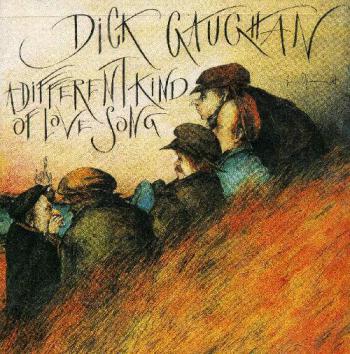
[1968]
Parole e musica di Ewan MacColl
Nel disco con Peggy Seeger intitolato “Hot Blast”, pubblicato nel 1978.
Interpretata anche da Dick Gaughan.
Una canzone scritta in occasione della nascita di uno dei tre figli che MacColl ebbe dalla Seeger.
Una bellissima lullaby che andrebbe cantata a tutti i bambini, molto dolcemente però, ché è un po’ dura… “Non c’è nessun uomo nero che ti porta via, non aver mai paura, non ci sono orchi o streghe cattive… Ci sono soltanto degli avidi figli di puttana che stanno aspettando di sfruttarti fino alla morte. Cresci forte, che presto sarai costretto a combattere ogni santo giorno contro un nemico che pensa di essere il padrone del mondo.”
Parole e musica di Ewan MacColl
Nel disco con Peggy Seeger intitolato “Hot Blast”, pubblicato nel 1978.
Interpretata anche da Dick Gaughan.
Una canzone scritta in occasione della nascita di uno dei tre figli che MacColl ebbe dalla Seeger.
Una bellissima lullaby che andrebbe cantata a tutti i bambini, molto dolcemente però, ché è un po’ dura… “Non c’è nessun uomo nero che ti porta via, non aver mai paura, non ci sono orchi o streghe cattive… Ci sono soltanto degli avidi figli di puttana che stanno aspettando di sfruttarti fino alla morte. Cresci forte, che presto sarai costretto a combattere ogni santo giorno contro un nemico che pensa di essere il padrone del mondo.”
That's another day gone by, son. Close your eyes
(Continues)
(Continues)
Contributed by Bernart Bartleby 2014/10/31 - 11:08
Freeborn Man
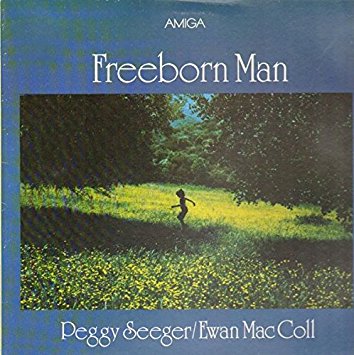
[1964]
Parole e musica di Ewan MacColl
Scritta per “The Travelling People”, l’ultima serie delle “Radio Ballads” curate e trasmesse da MacColl sulla BBC.
Ripresa in seguito da diversi artisti, quali Noel Murphy, Nigel Denver, Dave Burland, Tony Capstick e Dick Gaughan.
La canzone compare in alcuni dischi di MacColl con Peggy Seeger, compresa la compilation “Freeborn Man” del 1983.
Parole e musica di Ewan MacColl
Scritta per “The Travelling People”, l’ultima serie delle “Radio Ballads” curate e trasmesse da MacColl sulla BBC.
Ripresa in seguito da diversi artisti, quali Noel Murphy, Nigel Denver, Dave Burland, Tony Capstick e Dick Gaughan.
La canzone compare in alcuni dischi di MacColl con Peggy Seeger, compresa la compilation “Freeborn Man” del 1983.
I'm a freeborn man of the travelling people
(Continues)
(Continues)
Contributed by Bernart Bartleby 2014/10/31 - 09:51
Song Itineraries:
Rom, Racism, Porrajmos
Ireland Her Own
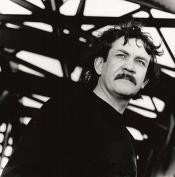
Inedita
eseguita più volte dal vivo
Words : Dick Gaughan / Music : Trad.
(To the tune of a song my grandmother Bridget Madden used to sing, "The Glens of Aherlow", which is also the tune known as "Skibbereen".)
Dedicated to the memory of Tom Jackson who wrote the splendid "Ireland Her Own", a Marxist history of Ireland following on from Connolly's "Labour in Irish History". The song is based around Fintan Lalor's statement of the aim of the Fenians - "Ireland her own and all therein 'twixt sod and sky"
The reference to "'98" is to the United Irishmen's attempted revolution of 1798 in which Catholic and Presbyterian fought together.
See also Florence Wilson's wonderful poem in Ulster Scots about the '98 revolution, The Man From God-Knows Where
eseguita più volte dal vivo
Words : Dick Gaughan / Music : Trad.
(To the tune of a song my grandmother Bridget Madden used to sing, "The Glens of Aherlow", which is also the tune known as "Skibbereen".)
Dedicated to the memory of Tom Jackson who wrote the splendid "Ireland Her Own", a Marxist history of Ireland following on from Connolly's "Labour in Irish History". The song is based around Fintan Lalor's statement of the aim of the Fenians - "Ireland her own and all therein 'twixt sod and sky"
The reference to "'98" is to the United Irishmen's attempted revolution of 1798 in which Catholic and Presbyterian fought together.
See also Florence Wilson's wonderful poem in Ulster Scots about the '98 revolution, The Man From God-Knows Where
It wounds me in the heart although
(Continues)
(Continues)
Contributed by DoNQuijote82 2013/11/6 - 21:10
One Miner's Life
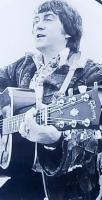
[Anni 60]
Scritto nell’inglese che si parla in County Durham (p.e. “wee knaas” per “we knows”)
Anche Dick Gaughan l’ha proposta nell’album “True and Bold” del 1986, ma dandone un’interpretazione nello scots di Lothian.
Testo trovato su Union Songs
Dalla culla alla bara, la dura vita del minatore che Ed Pickford conobbe da vicino…
Scritto nell’inglese che si parla in County Durham (p.e. “wee knaas” per “we knows”)
Anche Dick Gaughan l’ha proposta nell’album “True and Bold” del 1986, ma dandone un’interpretazione nello scots di Lothian.
Testo trovato su Union Songs
Dalla culla alla bara, la dura vita del minatore che Ed Pickford conobbe da vicino…
Now you are born, another to feed
(Continues)
(Continues)
Contributed by Dead End 2012/7/16 - 16:28
Song Itineraries:
The War of Labour: Emigration, Immigration, Exploitation, Slavery
See The People Run
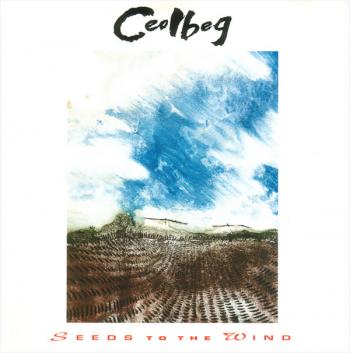
[1991]
Album “Seeds to the Wind”, prodotto da Dick Gaughan
Scritta da Davy Steele
Testo trovato su MySongBook
“All internal/civil disputes when ending in conflict are in general about power and how to prevent the masses from obtaining any. This is done by training (brainwashing) a few of the masses to subdue the rest. The song is one of hope. (Davy Steele, notes Ceolbeg, 'Seeds to the Wind')”
Album “Seeds to the Wind”, prodotto da Dick Gaughan
Scritta da Davy Steele
Testo trovato su MySongBook
“All internal/civil disputes when ending in conflict are in general about power and how to prevent the masses from obtaining any. This is done by training (brainwashing) a few of the masses to subdue the rest. The song is one of hope. (Davy Steele, notes Ceolbeg, 'Seeds to the Wind')”
In an Eastern land, on a national square
(Continues)
(Continues)
Contributed by The Lone Ranger 2010/5/13 - 09:20
Ballad of '84
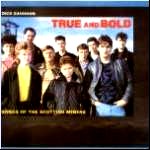
[1986]
Album “True and Bold”
“Written at the end of the 1984/85 Miners' Strike in the UK for the Lothian Victimised Miners, most of whom were friends of mine, who lost their jobs as a result of their part in the strike. Davie Hamilton (now an MP) was the Chair of the Lothian Miner's Central Strike Committee - he spent 3 months in Saughton Prison after being arrested while trying to get medical assistance for an injured picket. He also lost his job.
Malcolm Pitt was the Area president of the Kent National Union of Mineworkers and was also arrested and imprisoned on a trivial charge.
At the time of the strike Arthur Scargill was the National President of the NUM, Peter Heathfield was General Secretary, and Mick McGahey was National Vice-President and Scottish Area President.
Ian MacGregor was an American hitman brought in by the Thatcher Government as head of the National Coal Board to... (Continues)
Album “True and Bold”
“Written at the end of the 1984/85 Miners' Strike in the UK for the Lothian Victimised Miners, most of whom were friends of mine, who lost their jobs as a result of their part in the strike. Davie Hamilton (now an MP) was the Chair of the Lothian Miner's Central Strike Committee - he spent 3 months in Saughton Prison after being arrested while trying to get medical assistance for an injured picket. He also lost his job.
Malcolm Pitt was the Area president of the Kent National Union of Mineworkers and was also arrested and imprisoned on a trivial charge.
At the time of the strike Arthur Scargill was the National President of the NUM, Peter Heathfield was General Secretary, and Mick McGahey was National Vice-President and Scottish Area President.
Ian MacGregor was an American hitman brought in by the Thatcher Government as head of the National Coal Board to... (Continues)
Come gather round me people and I'll sing to you a song
(Continues)
(Continues)
Contributed by Alessandro 2010/4/21 - 13:53
Song Itineraries:
The War of Labour: Emigration, Immigration, Exploitation, Slavery
Auchengeich Disaster
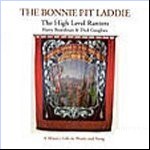
[1959]
Lyrics by Norman Buchan
Music: traditional (to the tune known as "Skippin Barfit Thro The Heather")
The Bonnie Pit Laddie (1975)
In September 1959, 47 men lost their lives in a coal mine near the town of Auchengeich when a faulty fan purifying the air in the colliery went on fire due to an electrical fault. The men were in bogies travelling to the coal face to start work, and due to the intense smoke they were abandoned just a few hundred yards from safety. The mine was eventually flooded to put out the fire; there was only one survivor from the crews. The Mining accident was one of the worst within the UK in the 20th century, widowing 41 women and leaving 76 children without a father.
In September 2009, a memorial was erected by the Auchengeich Miners Welfare honouring the forty-seven men who lost their lives in the Auchengeich mining disaster of 18 September, 1959. In the early hours of 19 November, 2009, part of the memorial – an uninsured bronze representation of a miner, worth between £35,000 and £40,000 – was stolen…
Lyrics by Norman Buchan
Music: traditional (to the tune known as "Skippin Barfit Thro The Heather")
The Bonnie Pit Laddie (1975)
In September 1959, 47 men lost their lives in a coal mine near the town of Auchengeich when a faulty fan purifying the air in the colliery went on fire due to an electrical fault. The men were in bogies travelling to the coal face to start work, and due to the intense smoke they were abandoned just a few hundred yards from safety. The mine was eventually flooded to put out the fire; there was only one survivor from the crews. The Mining accident was one of the worst within the UK in the 20th century, widowing 41 women and leaving 76 children without a father.
In September 2009, a memorial was erected by the Auchengeich Miners Welfare honouring the forty-seven men who lost their lives in the Auchengeich mining disaster of 18 September, 1959. In the early hours of 19 November, 2009, part of the memorial – an uninsured bronze representation of a miner, worth between £35,000 and £40,000 – was stolen…
In Auchengeich there stands a pit
(Continues)
(Continues)
Contributed by giorgio 2010/2/12 - 08:49
Song Itineraries:
The War of Labour: Emigration, Immigration, Exploitation, Slavery
Go, Move, Shift
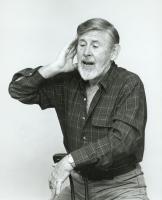
[1964]
Canzone contenuta in “The Travelling People”, l’ultima delle “Radio Ballads”, gli audio-documentari che Ewan MacColl, Peggy Seeger, e Charles Parker realizzarono tra il 1958 e il 1964 per la BBC, tra le prime trasmissioni radiofoniche a raccogliere direttamente sul campo le voci della gente comune: macchinisti, operai, pescatori, minatori ma anche adolescenti delle periferie, disabili affetti da poliomelite, pugili e – come in questo brano – “gypsies” che nel Regno Unito e in Irlanda sono non solo e non tanto i Roma ma piuttosto le diverse e distinte comunità di English, Scottish e Irish Travellers, tra cui i Romanichals (arrivati dall’Ungheria nel 16° secolo), i Welsh Kale (nel Galles dal 1700) e i Pavees irlandesi, presenti anche negli USA, discendenti di coloro che nel 19° secolo furono cacciati dalle loro terre dalle armate di Cromwell e dalla “Potato Famine”.
Inutile dire... (Continues)
Canzone contenuta in “The Travelling People”, l’ultima delle “Radio Ballads”, gli audio-documentari che Ewan MacColl, Peggy Seeger, e Charles Parker realizzarono tra il 1958 e il 1964 per la BBC, tra le prime trasmissioni radiofoniche a raccogliere direttamente sul campo le voci della gente comune: macchinisti, operai, pescatori, minatori ma anche adolescenti delle periferie, disabili affetti da poliomelite, pugili e – come in questo brano – “gypsies” che nel Regno Unito e in Irlanda sono non solo e non tanto i Roma ma piuttosto le diverse e distinte comunità di English, Scottish e Irish Travellers, tra cui i Romanichals (arrivati dall’Ungheria nel 16° secolo), i Welsh Kale (nel Galles dal 1700) e i Pavees irlandesi, presenti anche negli USA, discendenti di coloro che nel 19° secolo furono cacciati dalle loro terre dalle armate di Cromwell e dalla “Potato Famine”.
Inutile dire... (Continues)
Born in the middle of the afternoon
(Continues)
(Continues)
Contributed by Alessandro 2010/2/11 - 10:07
The John MacLean March
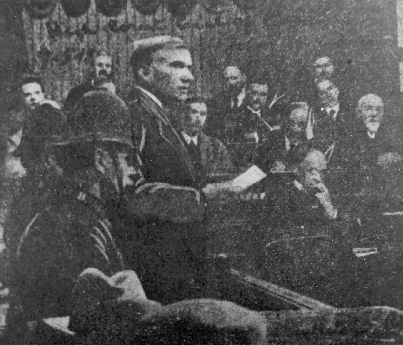
[1948?]
Versi di Hamish Henderson
Su di una melodia tradizionale scozzese
“The John MacLean March had its first performance in the St. Andrews Hall, Glasgow, at the memorial [concert?] to the great Scottish republican socialist on 28 Nov. 1948, where it was sung by William Noble. It is set to a traditional version of a pipe melody that is today played and sung all over Scotland to the more commercially patriotic verses of Scotland the Brave.” (da Henry's Songbook)
Il brano è stato interpretato da moltissimi artisti e gruppi scozzesi, a cominciare da Dick Gaughan (in “No More Forever” del 1972) e Iain MacKintosh (in “By Request” del 1974).
Come Ballad Of John MacLean di Matt McGinn, un'altra canzone dedicata alla figura di John Maclean, socialista scozzese, noto per la sua fiera opposizione alla prima guerra mondiale. Per questo nel 1918 fu processato per sedizione. Durante l'udienza... (Continues)
Versi di Hamish Henderson
Su di una melodia tradizionale scozzese
“The John MacLean March had its first performance in the St. Andrews Hall, Glasgow, at the memorial [concert?] to the great Scottish republican socialist on 28 Nov. 1948, where it was sung by William Noble. It is set to a traditional version of a pipe melody that is today played and sung all over Scotland to the more commercially patriotic verses of Scotland the Brave.” (da Henry's Songbook)
Il brano è stato interpretato da moltissimi artisti e gruppi scozzesi, a cominciare da Dick Gaughan (in “No More Forever” del 1972) e Iain MacKintosh (in “By Request” del 1974).
Come Ballad Of John MacLean di Matt McGinn, un'altra canzone dedicata alla figura di John Maclean, socialista scozzese, noto per la sua fiera opposizione alla prima guerra mondiale. Per questo nel 1918 fu processato per sedizione. Durante l'udienza... (Continues)
Hey Mac did ye see him as ye cam' doon by Gorgie,
(Continues)
(Continues)
Contributed by Alessandro 2009/9/30 - 10:52
Whatever Happened

[2006]
Album "Lucky For Some"
"I was having a conversation one night with someone who expressed their frustration with the fact that the generation which had kicked up hell at the time of Vietnam appeared to have little to say about the invasion of Iraq, the dismantling of the Health Service, the renewal of the Trident nuclear submarines, the erosion of civil liberties and habeus corpus, and the million and one other issues confronting us now. And I thought about just how many of my generation seemed to have gone to sleep round about 1979 and not woken up again yet." (Dick Gaughan)
Album "Lucky For Some"
"I was having a conversation one night with someone who expressed their frustration with the fact that the generation which had kicked up hell at the time of Vietnam appeared to have little to say about the invasion of Iraq, the dismantling of the Health Service, the renewal of the Trident nuclear submarines, the erosion of civil liberties and habeus corpus, and the million and one other issues confronting us now. And I thought about just how many of my generation seemed to have gone to sleep round about 1979 and not woken up again yet." (Dick Gaughan)
I hear you talking a lot about making money
(Continues)
(Continues)
Contributed by Alessandro 2009/9/28 - 22:15
Different Drum

[2006]
Album "Lucky For Some"
Album "Lucky For Some"
We walked your old road, got sore feet
(Continues)
(Continues)
Contributed by Alessandro 2009/9/28 - 20:37
Dressed to Kill
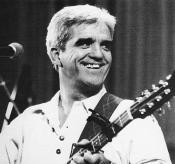
[1993]
Incisa da Dick Gaughan in "Clan Alba" (1995)
Incisa da Dick Gaughan in "Clan Alba" (1995)
I suppose you could say he was a common man
(Continues)
(Continues)
Contributed by Alessandro 2009/9/28 - 20:31
Call It Freedom
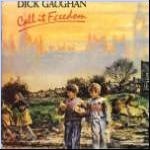
[1988]
Album "Call It Freedom"
Album "Call It Freedom"
Glittering shop windows, sparkling commodities
(Continues)
(Continues)
Contributed by Alessandro 2009/9/28 - 16:12
Amandla!

[1988]
Album "Call It Freedom"
"Written in 1985. 'Amandla' means 'Power'. Many well-meaning people become confused when the oppressed fight back but I cannot think of a single instance in history when a corrupt and brutal regime ever gave up power voluntarily.
When I wrote this song, I dedicated it to the men and women of Umkhonto We Sizwe, ('Spear of the Nation', mentioned in the song) the armed wing of the African National Congress.
Now that apartheid is gone and South Africa has democracy, I re-dedicate it to the memory of Joe Slovo." (Dick Gaughan)
Album "Call It Freedom"
"Written in 1985. 'Amandla' means 'Power'. Many well-meaning people become confused when the oppressed fight back but I cannot think of a single instance in history when a corrupt and brutal regime ever gave up power voluntarily.
When I wrote this song, I dedicated it to the men and women of Umkhonto We Sizwe, ('Spear of the Nation', mentioned in the song) the armed wing of the African National Congress.
Now that apartheid is gone and South Africa has democracy, I re-dedicate it to the memory of Joe Slovo." (Dick Gaughan)
There was a time, beautiful Africa
(Continues)
(Continues)
Contributed by Alessandro 2009/9/28 - 16:09
Song Itineraries:
Apartheid, Institutionalized Racist Shame
Freedom Come Aa Ye

[1960]
Written to the pipes tune The Bloody Fields of Flanders
Registrata, fra gli altri, anche da Dick Gaughan in "Earl O' Moray" (1978)
Freedom Come-All-Ye is a song written by Hamish Henderson, the Scottish poet, songwriter, and intellectual. It is written in the Scots Language. Freedom Come-All-Ye, one of Henderson's most important songs, gives a non-romantic, revisionist view of the role of the Scots in the world at the time it was written. It describes a wind of change blowing through Scotland and the world at large, sweeping away exploitation and imperialism. It renounces the tradition of the Scottish soldier both as imperial cannon-fodder and colonial oppressor, and ends with a vision of a future global society which is multiracial and just.
The song was written in 1960, to an adaptation of the First World War pipe march The Bloody Fields of Flanders, which Henderson first heard... (Continues)
Written to the pipes tune The Bloody Fields of Flanders
Registrata, fra gli altri, anche da Dick Gaughan in "Earl O' Moray" (1978)
Freedom Come-All-Ye is a song written by Hamish Henderson, the Scottish poet, songwriter, and intellectual. It is written in the Scots Language. Freedom Come-All-Ye, one of Henderson's most important songs, gives a non-romantic, revisionist view of the role of the Scots in the world at the time it was written. It describes a wind of change blowing through Scotland and the world at large, sweeping away exploitation and imperialism. It renounces the tradition of the Scottish soldier both as imperial cannon-fodder and colonial oppressor, and ends with a vision of a future global society which is multiracial and just.
The song was written in 1960, to an adaptation of the First World War pipe march The Bloody Fields of Flanders, which Henderson first heard... (Continues)
Roch the win i the clear day's dawin
(Continues)
(Continues)
Contributed by Alessandro 2009/9/24 - 14:22
Johnny Faa, or The Gypsy Laddie
Anonymous
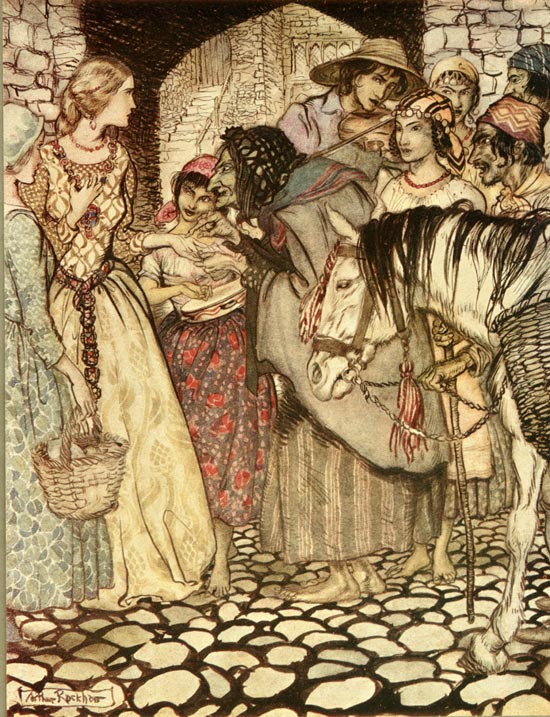
Child #200
Tradizionale scozzese
Scottish Traditional
[Origin: 17th Century]
[Origine: XVII Secolo]
Modern Performers: Ewan McColl, Dick Gaughan, Jean Ritchie (American version)
Interpreti moderni: Ewan McColl, Dick Gaughan, Jean Ritchie (versione americana)
In questo sito cerchiamo il più possibile di andare alle radici delle cose. Con questa ballata seicentesca scozzese, catalogata dal Child con il n° 200, ci spingiamo in epoche dove gli "zingari rapitori" vengono messi alla forca; una cosa, ovviamente, promanante da un pregiudizio del tutto scomparso. In questa felice epoca, secoli dopo, ci limitiamo soltanto a dire che "rapiscono i bambini" con susseguenti pogrom a Ponticelli e altrove. Pregiudizi, come si vede, antichissimi. Anche in questo caso il commento e la traduzione provengono dal mio vecchio sito sulle Ballate Popolari Angloscozzesi; la traduzione risale a circa il 1992.... (Continues)
Tradizionale scozzese
Scottish Traditional
[Origin: 17th Century]
[Origine: XVII Secolo]
Modern Performers: Ewan McColl, Dick Gaughan, Jean Ritchie (American version)
Interpreti moderni: Ewan McColl, Dick Gaughan, Jean Ritchie (versione americana)
In questo sito cerchiamo il più possibile di andare alle radici delle cose. Con questa ballata seicentesca scozzese, catalogata dal Child con il n° 200, ci spingiamo in epoche dove gli "zingari rapitori" vengono messi alla forca; una cosa, ovviamente, promanante da un pregiudizio del tutto scomparso. In questa felice epoca, secoli dopo, ci limitiamo soltanto a dire che "rapiscono i bambini" con susseguenti pogrom a Ponticelli e altrove. Pregiudizi, come si vede, antichissimi. Anche in questo caso il commento e la traduzione provengono dal mio vecchio sito sulle Ballate Popolari Angloscozzesi; la traduzione risale a circa il 1992.... (Continues)
The gypsies they came to my Lord Cassilis’ yett
(Continues)
(Continues)
Contributed by Riccardo Venturi 2009/9/24 - 03:08
Song For Ireland
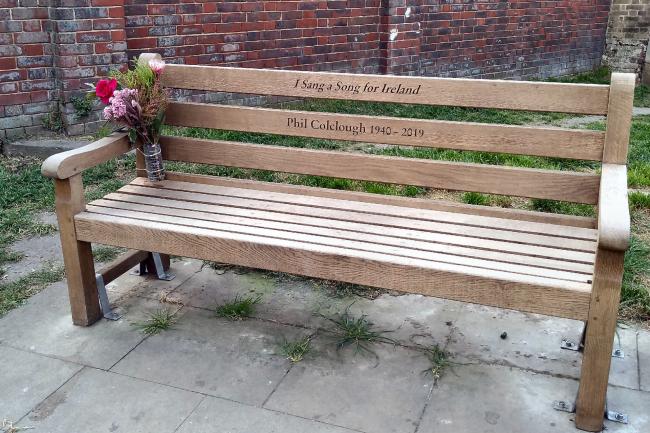
"...Dreaming in the night
I saw a land where no one had to fight..."
I saw a land where no one had to fight..."
"Song for Ireland" was inspired by a trip the Colcloughs took to the Dingle Peninsula. Described as a "modern classic", it has been recorded by numerous artists, including Dick Gaughan, Luke Kelly, Mary Black, Ralph McTell, Celtic Spirit, The Dubliners, Brendan Hayes and Damien Leith.
Walking all the day
(Continues)
(Continues)
Contributed by Alessandro 2009/1/29 - 22:21
Song Itineraries:
Conflicts in Ireland
Sing About Love

[2008]
Album “The Boy Bands Have Won…”
Dall'outro al brano sul sito del gruppo:
We stood around in a half-circle in the airless Shabby Road basement for four weeks solid singing this song until we got it right and lost our voices.
It was inspired partly by Dick Gaughan’s ‘A Different Kind of Love Song’, the first verse of which says, ‘You ask me why I sing no love songs/You say the songs that I sing make you angry and sad/You say that you listen to music/To escape from the things that make you feel bad.’
He tells the story of “... playing in a folk club somewhere in the southeast of England when a woman came up to me and proceeded to ask me all the questions in the first verse of this. When I replied, she looked at me sadly and said, ‘Oh, you’re still at the political stage, then,’ and walked off.”
Album “The Boy Bands Have Won…”
Dall'outro al brano sul sito del gruppo:
We stood around in a half-circle in the airless Shabby Road basement for four weeks solid singing this song until we got it right and lost our voices.
It was inspired partly by Dick Gaughan’s ‘A Different Kind of Love Song’, the first verse of which says, ‘You ask me why I sing no love songs/You say the songs that I sing make you angry and sad/You say that you listen to music/To escape from the things that make you feel bad.’
He tells the story of “... playing in a folk club somewhere in the southeast of England when a woman came up to me and proceeded to ask me all the questions in the first verse of this. When I replied, she looked at me sadly and said, ‘Oh, you’re still at the political stage, then,’ and walked off.”
I don’t want to sing about anger and hate
(Continues)
(Continues)
Contributed by Alessandro 2009/1/11 - 22:59
Stand Up For Judas!
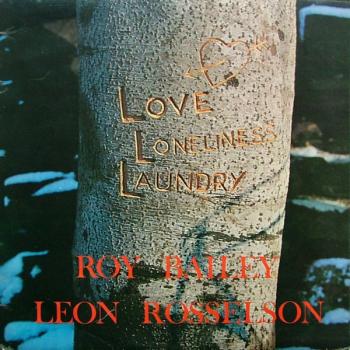
Originariamente in Love Loneliness Laundry (Roy Bailey / Leon Rosselson) del 1977
Canzone inclusa nella compilation "RosselSonGs" (1990) ma scritta sicuramente molti anni prima, tant'è che è stata anche incisa da Dick Gaughan nel suo disco del 1983, "Different Kind of Love Song".
Canzone inclusa nella compilation "RosselSonGs" (1990) ma scritta sicuramente molti anni prima, tant'è che è stata anche incisa da Dick Gaughan nel suo disco del 1983, "Different Kind of Love Song".
The Romans were the masters
(Continues)
(Continues)
Contributed by Alessandro 2008/11/5 - 13:33
Think Again
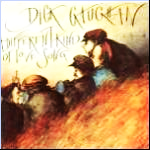
Different Kind of Love Song (1983)
"Written in February 1981 on the railway platform at Friedrichstrasse station which used to be no-man's-land between East and West Berlin. This was during the period when Ronald Reagan and Margaret Thatcher were heightening the Cold War rhetoric in cynical attempts to increase their domestic popularity by John Wayne-esque posturing. I found it quite incredible that most people seemed to think there was absolutely nothing wrong with these lunatics being prepared to risk leading humanity over the edge of the nuclear abyss in order to get themselves re-elected. Sometimes I genuinely do believe that the sane people are all in mental hospitals and the lunatics really are being allowed to run the show.
Inspired by the poem by Yevgeny Yevtushenko, 'Do you think the Russians stand for war?'"
(Dick Gaughan)
Inspired by the poem by Yevgeny Yevtushenko, 'Do you think the Russians stand for war?'"
(Dick Gaughan)
Do you think that the Russians want war?
(Continues)
(Continues)
Contributed by Renato Stecca 2007/11/25 - 11:07
Farewell To Sicily

[1944]
Lyrics by Hamish Henderson
Music by Pipe Major James Robertson of Banff
Testo di Hamish Henderson
Musica del comandante della banda scozzese James Robertson di Banff
Una canzone scozzese, e scritta nel più stretto e ostico dialetto delle Highlands, dedicata...alla Sicilia? In guerra può succedere anche questo. Nel 1943, dopo lo sbarco alleato, il 51° reggimento di fanteria delle Highlands, proveniente dall'Africa Settentrionale, viene messo di stanza in Sicilia, con comando nella località di Tremestieri, presso Messina in direzione di Taormina. Ne fa parte anche il capitano Hamish Henderson, che nella vita civile fa il folklorista e lo scrittore di canzoni. Uno dei maggiori della sua terra. Nel 1944, quando il reggimento viene spostato e deve abbandonare la Sicilia, Henderson scrive una canzone facendola musicare al comandante ("Pipe Major", ovvero "Cornamusa maggiore") della... (Continues)
Lyrics by Hamish Henderson
Music by Pipe Major James Robertson of Banff
Testo di Hamish Henderson
Musica del comandante della banda scozzese James Robertson di Banff
Una canzone scozzese, e scritta nel più stretto e ostico dialetto delle Highlands, dedicata...alla Sicilia? In guerra può succedere anche questo. Nel 1943, dopo lo sbarco alleato, il 51° reggimento di fanteria delle Highlands, proveniente dall'Africa Settentrionale, viene messo di stanza in Sicilia, con comando nella località di Tremestieri, presso Messina in direzione di Taormina. Ne fa parte anche il capitano Hamish Henderson, che nella vita civile fa il folklorista e lo scrittore di canzoni. Uno dei maggiori della sua terra. Nel 1944, quando il reggimento viene spostato e deve abbandonare la Sicilia, Henderson scrive una canzone facendola musicare al comandante ("Pipe Major", ovvero "Cornamusa maggiore") della... (Continues)
The pipie is dozie, the pipie is fey
(Continues)
(Continues)
Contributed by Riccardo Venturi 2006/8/21 - 14:05
×
![]()

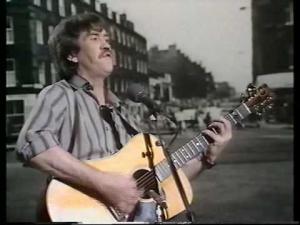
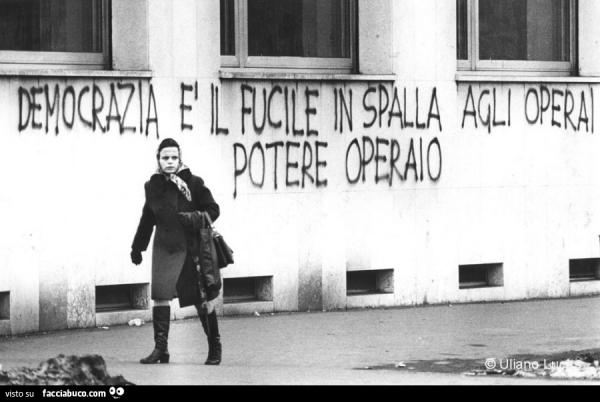
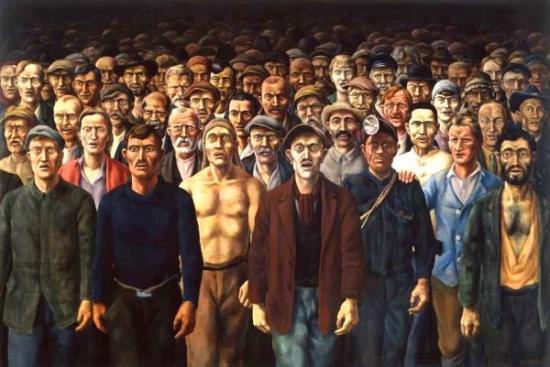
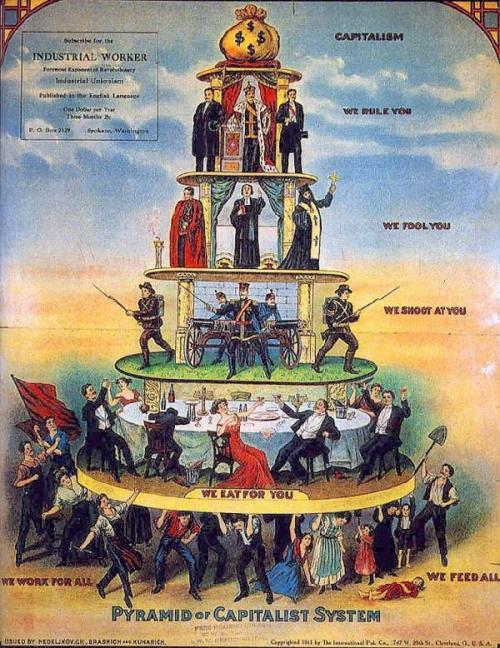
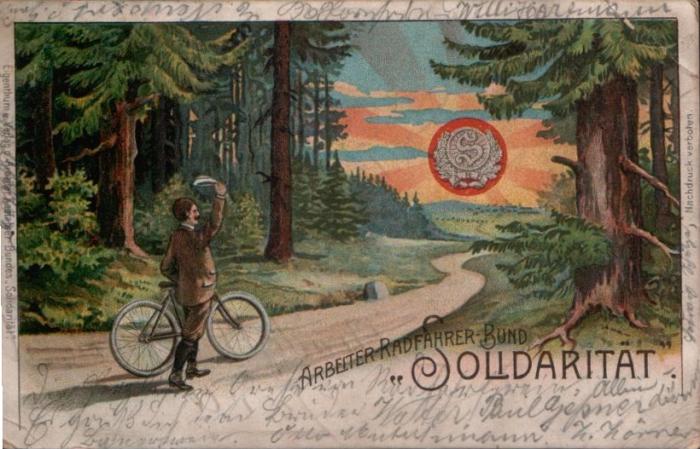
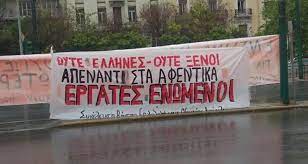
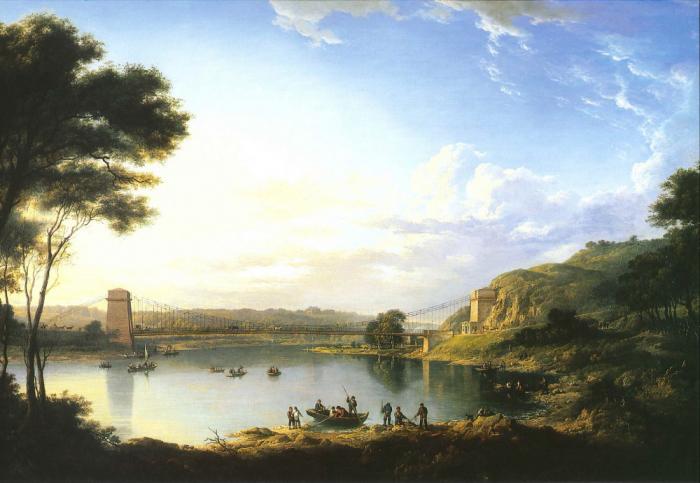
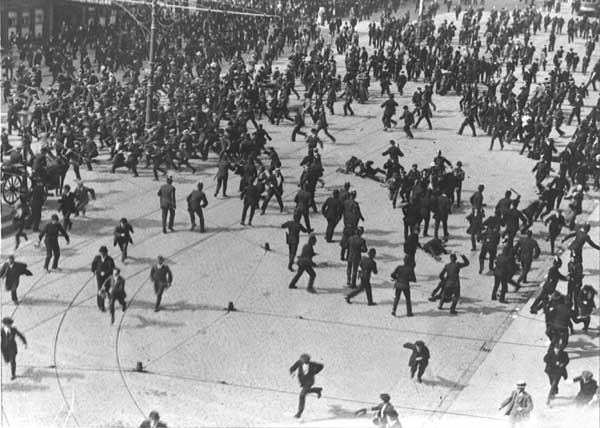

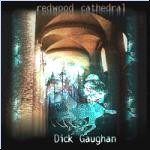
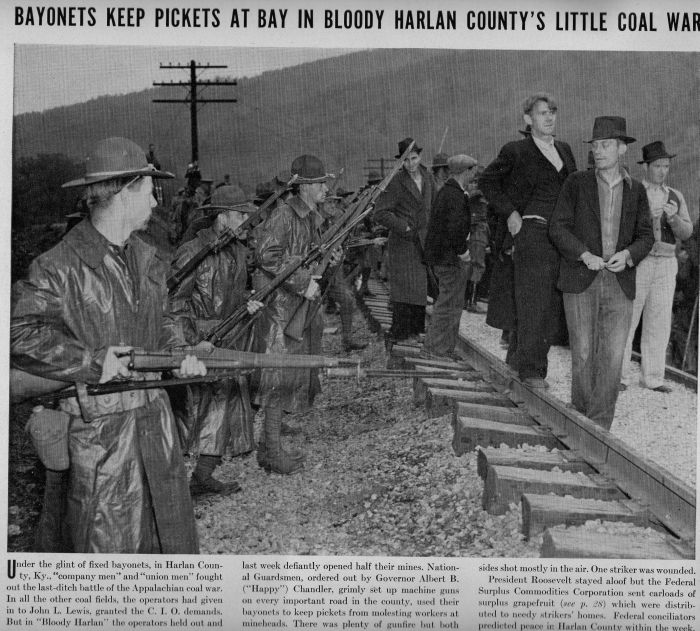

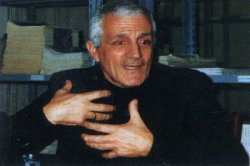
Testo / Lyrics / Paroles / Sanat: Ed Pickford
Musica / Music / Musique / Sävel: Dick Gaughan
Album / Albumi: Handful of Earth
Canzone scritta da Ed Pickford, minatore e cantautore inglese originario del Durham, autore ed interprete di molte canzoni di lotta. La musica di questa "Worker's Song" fu arrangiata all'inizio degli anni 80 da Dick Gaughan che la incluse nel suo celeberrimo album del 1981 intitolato "Handful of Earth". I Dropkick Murphys l'hanno incisa nel 2003 nell'album intitolato "Blackout" (Dead End)